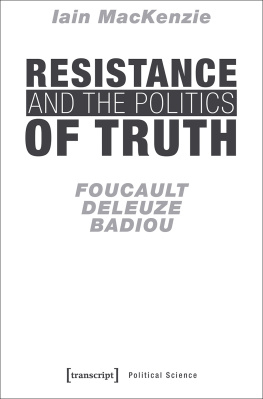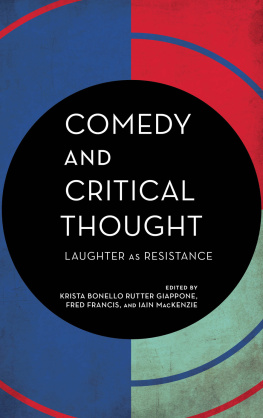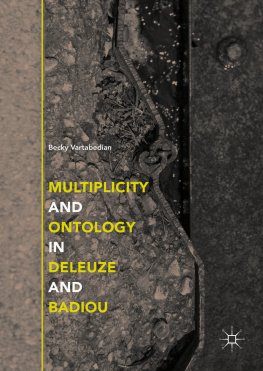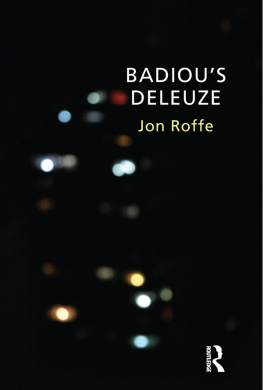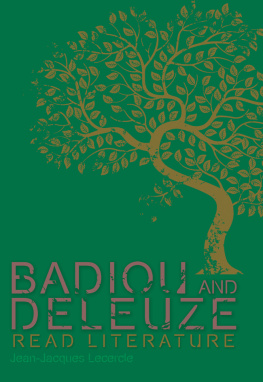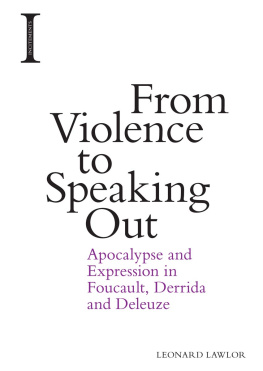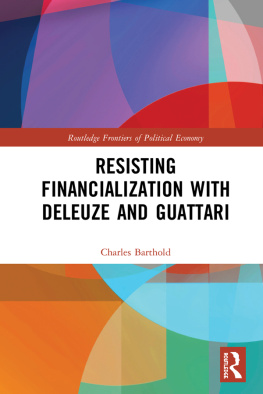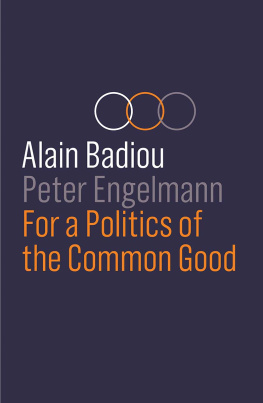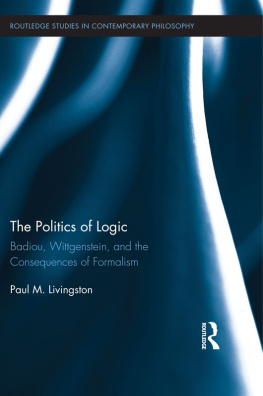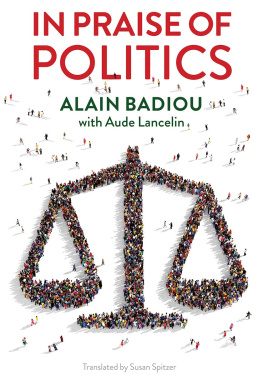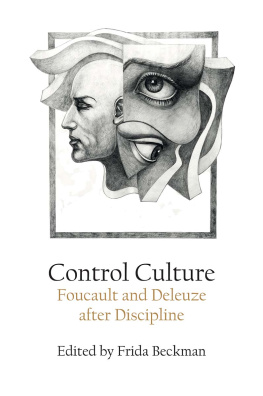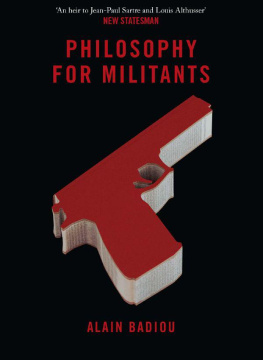Iain MacKenzie - Resistance and the Politics of Truth: Foucault, Deleuze, Badiou
Here you can read online Iain MacKenzie - Resistance and the Politics of Truth: Foucault, Deleuze, Badiou full text of the book (entire story) in english for free. Download pdf and epub, get meaning, cover and reviews about this ebook. year: 2018, publisher: Transcript Verlag, genre: Romance novel. Description of the work, (preface) as well as reviews are available. Best literature library LitArk.com created for fans of good reading and offers a wide selection of genres:
Romance novel
Science fiction
Adventure
Detective
Science
History
Home and family
Prose
Art
Politics
Computer
Non-fiction
Religion
Business
Children
Humor
Choose a favorite category and find really read worthwhile books. Enjoy immersion in the world of imagination, feel the emotions of the characters or learn something new for yourself, make an fascinating discovery.
- Book:Resistance and the Politics of Truth: Foucault, Deleuze, Badiou
- Author:
- Publisher:Transcript Verlag
- Genre:
- Year:2018
- Rating:5 / 5
- Favourites:Add to favourites
- Your mark:
- 100
- 1
- 2
- 3
- 4
- 5
Resistance and the Politics of Truth: Foucault, Deleuze, Badiou: summary, description and annotation
We offer to read an annotation, description, summary or preface (depends on what the author of the book "Resistance and the Politics of Truth: Foucault, Deleuze, Badiou" wrote himself). If you haven't found the necessary information about the book — write in the comments, we will try to find it.
Resistance and the Politics of Truth: Foucault, Deleuze, Badiou — read online for free the complete book (whole text) full work
Below is the text of the book, divided by pages. System saving the place of the last page read, allows you to conveniently read the book "Resistance and the Politics of Truth: Foucault, Deleuze, Badiou" online for free, without having to search again every time where you left off. Put a bookmark, and you can go to the page where you finished reading at any time.
Font size:
Interval:
Bookmark:

Iain MacKenzie is a co-director of the Centre for Critical Thought and a senior lecturer in Politics at the University of Kent. His research focusses on poststructuralism and political philosophy.
2018 transcript Verlag, Bielefeld
Bibliographic information published by the Deutsche Nationalbibliothek
The Deutsche Nationalbibliothek lists this publication in the Deutsche Nationalbibliografie; detailed bibliographic data are available in the Internet at http://dnb.d-nb.de
Cover layout: Kordula Rckenhaus, Bielefeld
Print-ISBN 978-3-8376-3907-0
PDF-ISBN 978-3-8394-3907-4
EPUB-ISBN 978-3-7328-3907-0
This book is the result of many conversations over the years, largely within the framework of a module that I have taught that bears the same title. My thanks to all the students who have contributed to our discussions in seminars and who, in ways that are too imperceptible for me to know, have helped shape my understanding of the key themes of resistance, politics and truth. For their close and generous readings of an early draft of this book, I thank Ben Turner, Chris Henry and Gaby Hernandez. For all his editorial work on this project, which has been a model of thorough and meticulous engagement throughout, Jakob Horstmann has my deep thanks. My co-conspirator in theory, Robert Porter, has been a constant companion and friend as this book has taken shape and I am particularly thankful for his agreement that I could use small sections of our co-authored unpublished work in the Introduction and final chapter. To my children, Kathryn and Sam, whose love and support through the tricky stages of the books gestation was invaluable in so many ways, thanks are not enough. For her unwavering capacity for understanding and her sharp intellect, all of which made this project possible, I dedicate the book to Anna Cutler, in love and in life.
The truth will set you free is a maxim that has been and remains central to both theories and practices of resistance. Often, and with just cause, we think that the regimes of domination and oppression from which we wish to be liberated are those based on lies: lies about who we are that form the bedrock of a whole series of economic, social and political formations that discriminate against us on the basis of class, gender, sexual orientation, nationality, cultural practices and so on. With this thought firmly in our minds, and the lies exposed, we are able to muster the forces of resistance to overthrow or to call to account those regimes that have dominated our lives. Of course, resistance more often than not requires commitment and courage, because those who benefit from the lies never want to give up the power that their lies afford them, but with the truth firmly at our side we endure and persevere knowing that one day we will be victorious and our time of freedom will come; if not for us then at least for those that will follow in our footsteps. It is a powerful and profoundly motivating image of the relationship between resistance, politics and truth: but is it too simple because too dogmatic?
What if there is a politics to truth? If every attempt to articulate the truth is already implicated in a political perspective then it is by no means obvious that we will become free by simply discovering the truth about that which oppresses us. If we are guided by the idea that the truth can be set against oppressive political regimes are we often forgetting the political perspective that motivates our own understanding of what counts as the truth? Of course, we may not be so nave as to think that what counts as the truth is neutral with respect to politics, and we may defend the idea that our political perspective is the one that will make us, and everyone, truly free. But this already complicates the image and forces us to think about why our perspective and not another is the true source of our liberation. Moreover, one of the historical problems we have to face is that we are prone to forgetting that what we think is freedom may in fact be a new form of oppression, for us and/or for others. Such is a typically liberal concern with the revolutionary movements that characterised the twentieth century. But it is also a concern for those in the civil rights movements that have witnessed their liberatory agendas being subsumed within new, and sometimes more subtle and more pervasive, forms of domination within liberal democracies. In general terms, perhaps the truth will not set us free and it is the idea of truth itself that must be resisted because one way or another we will always end up in states of oppression if we mobilise behind it. Understandably, such scepticism with regard to the traditional image of the relationship between resistance, politics and truth may have us shrugging in acceptance of the status quo: but is that too defeatist because too sceptical?
Is it possible to move beyond the dogmatic simplicity of the traditional image without accepting the sceptical defeatism that may result from quickly embracing a more complicated image? This question is the start of a more critical appreciation of the relationship between truth, freedom and resistance. Putting it this way, however, is to acknowledge that much of Enlightenment and post-Enlightenment social and political thought has been motivated by the desire to understand the relationship between these terms. That said, it remains the case that most modern thinkers in the Enlightenment tradition have resolved this relationship on the side of variously nuanced versions of the traditional image, while some, more occasionally, have resolved it on the side of similarly nuanced forms of defeatism. Very few theoretical positions have embraced the challenge of a non-dogmatic and non-defeatist understanding of the relationship between resistance, politics and truth; which is to say that very few theorists have sought both to provide good grounds for practices of resistance and to accept that truth is always already implicated in the regimes of domination that those practices hope to overthrow. Two relatively recent theoretical positions that take this challenge seriously are the poststructuralist and post-foundational political philosophies that have emerged during the second half of the twentieth century. Of course, they continue to inspire admiration and condemnation in almost equal measure both from those who defend traditional notions of truth in some form and from those who espouse defeatism in some form. But what they offer, alongside many contributions they contain, is a way of thinking about the relationship between truth, politics and resistance that prioritises the connection of these terms through the idea of the event. In other words, they ask: what happens in practices of resistance? And, how does understanding what happens in and through practices of resistance give us grounds to develop a complex image of the politics of truth such that we can be optimistic rather than defeatist? However, while both perspectives have developed event-oriented philosophies that view the category of the event as ontologically primary and politically powerful that purport to do both of these things, they have conceived of this in competing ways. The main theme of this book is to understand the relationship between truth, politics and resistance as an evental relationship, through consideration of both poststructuralist and post-foundationalist perspectives.
These two political philosophies will frame discussion of major thinkers of the 20th and 21st Centuries; with a particular focus on Foucault, Deleuze and Badiou. While these three thinkers offer competing answers to the guiding questions they are also linked by virtue of their emphasis upon the importance of the category of the event when thinking about truth and also what we can hope to do to resist. Having explored these different yet overlapping perspectives it will be argued that a critically-oriented reading of poststructuralists (such as Foucault and Deleuze), one that places their work firmly within the Kantian legacy of modern philosophy, provides the grounds for practices of resistance that the post-foundational thinkers (such as Badiou) have eviscerated in the name of a renewed faith in truth, albeit a radically new conception of what it is to be a subject of truth. To prefigure the conclusion, one that will require some deft weaving through these three thinkers, the upshot of this is that a critically oriented poststructuralist position provides the grounds for sustainable practices of resistance against domination if we understand what happens in such practices as
Font size:
Interval:
Bookmark:
Similar books «Resistance and the Politics of Truth: Foucault, Deleuze, Badiou»
Look at similar books to Resistance and the Politics of Truth: Foucault, Deleuze, Badiou. We have selected literature similar in name and meaning in the hope of providing readers with more options to find new, interesting, not yet read works.
Discussion, reviews of the book Resistance and the Politics of Truth: Foucault, Deleuze, Badiou and just readers' own opinions. Leave your comments, write what you think about the work, its meaning or the main characters. Specify what exactly you liked and what you didn't like, and why you think so.

